|
Since Covid all my regular teaching and workshops have been cancelled, also major events such as large shows which I would normally be very busy preparing for - suddenly my working life is entirely different! Luckily I have been and still am busy with lots of orders (PLEASE keep them coming) which I have enjoyed having dedicated time to weave rather than fitting my making in between my teaching which is my normal situation. Family and friends have also taken the opportunity to order baskets which they have hinted about for years and I have even woven a Cyntell for myself. I am planning to continue making stock (which I never normally have) if and when I run out of orders.
This year I was supposed to be teaching 2 long courses in Harrogate for the National Basketmaker's Association in April and in Iowa in the USA in June. I spent the time I would be teaching in April weaving instead, a lot of traditional baskets but some more contemporary as well as in the pictures. The Welsh baskets I make and teach require a lot of advance preparation and also a lot of material to be harvested and prepared for students to use during class. The Cyntell, the Welsh Shopper and the split rib Trug are made on preformed frames which are traditionally made a year in advance. I have just worked out that the preparation of the frame and first 4 ribs takes around half the time of the construction of the whole basket. Each Cyntell basket requires 7-8 rods of 2 year old willow at least 1” thick, one of these is used to wrap tightly around a circular forma for the rim and the others are then split and shaved. 4 of these are dried around formas, the pattern of which has been handed down from D J Davies. The Llangwm Fisherwomans Pannier needs 15 pieces of green hazel for the frame as well as the weaving willow. I have used my newfound time well to process the large amount of willow and hazel which I had already harvested for the 8 Harrogate students so now have many frames drying - they won’t waste and next winter I will be able to weave instead. I have also experimented with adapting some of the designs - something I have been planning on doing for years. These frames and ribs are drying currently but new work should emerge from this situation which is exciting. I am really missing my City and Guilds students who I usually teach every month but we are keeping in close touch through Whats App, emails and video and Skype support, I have also been experimenting with preparing some instructional videos - thank goodness for modern technology! I have a shop on my website and also have an Etsy shop but need to spend time working on my SEO for this as I don't get any orders from it!
4 Comments
Out on the Sands,
the harvest was high-tide, breaking backs at low ebb, wily to the black quicksand. Jam-pot candles shepherd the sherpas sleeping on the shelly greens along the dark.. Side-saddle, our shawled queens pick their path from bolster to beds, pixies bowed to the brunt of the wind, cram and scrap still warm from the Rayburn, their sieves as big as sombreros. Bent triple, they scrape, draw, scrabble and pile the nutty sludge, spitting, to shake and swivel, then swirl in pill and pit. From pail to sacks and slumped panniers on the tide-bent backs of steeds who sure-hoove over the logged pools and switchback currents, to dunes of cockles cooked in gypsy-boilers on the flat by the Ship. This world is born, with birds singing happy as anything. Under the foundry light like a Bethlehem star, the dawn opens with fluted shells gaping in the steam-spit and broth of their bubbling sea.. Scalded and shelled, seared and rinsed, riddled soft meats, jewel through mesh tombolas, to be spread on plank-woods to cool. Panning for gold in the Penclawdd Klondike; these nuggets of the sands, gold as yolks packing the cheeks of the blind weaver’s baskets, brim-full and seaward, to be sailed with starched linens, spread like altars for the Swansea-bound train. A tapestry of gatherers, woven in red and black, freighted with cockle-meat stwcs on their bonnets and a basket in each claw; armed for market and the thresholds of their patches, where each steeled step is carved in stone. Pixies : bonnet Cram and scrap : carved knife and rake. Stwc : basket worn on head.o edit.Out on the Sands, the harvest was high-tide, breaking backs at low ebb, wily to the black quicksand. Jam-pot candles shepherd the sherpas sleeping on the shelly greens along the dark.. Side-saddle, our shawled queens pick their path from bolster to beds, pixies bowed to the brunt of the wind, cram and scrap still warm from the Rayburn, their sieves as big as sombreros. Bent triple, they scrape, draw, scrabble and pile the nutty sludge, spitting, to shake and swivel, then swirl in pill and pit. From pail to sacks and slumped panniers on the tide-bent backs of steeds who sure-hoove over the logged pools and switchback currents, to dunes of cockles cooked in gypsy-boilers on the flat by the Ship. This world is born, with birds singing happy as anything. Under the foundry light like a Bethlehem star, the dawn opens with fluted shells gaping in the steam-spit and broth of their bubbling sea.. Scalded and shelled, seared and rinsed, riddled soft meats, jewel through mesh tombolas, to be spread on plank-woods to cool. Panning for gold in the Penclawdd Klondike; these nuggets of the sands, gold as yolks packing the cheeks of the blind weaver’s baskets, brim-full and seaward, to be sailed with starched linens, spread like altars for the Swansea-bound train. A tapestry of gatherers, woven in red and black, freighted with cockle-meat stwcs on their bonnets and a basket in each claw; armed for market and the thresholds of their patches, where each steeled step is carved in stone. Pixies : bonnet Cram and scrap : carved knife and rake. Stwc : basket worn on head. |
AuthorI am a Welsh basket maker, weaving and teaching in South Wales, everything from traditional welsh 'cyntells' to woven sidecars! Archives
April 2020
Categories |
Services |
Company |
|

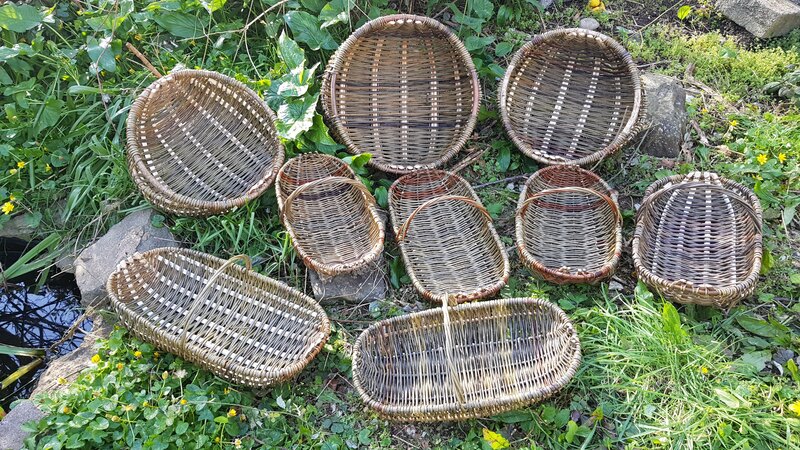
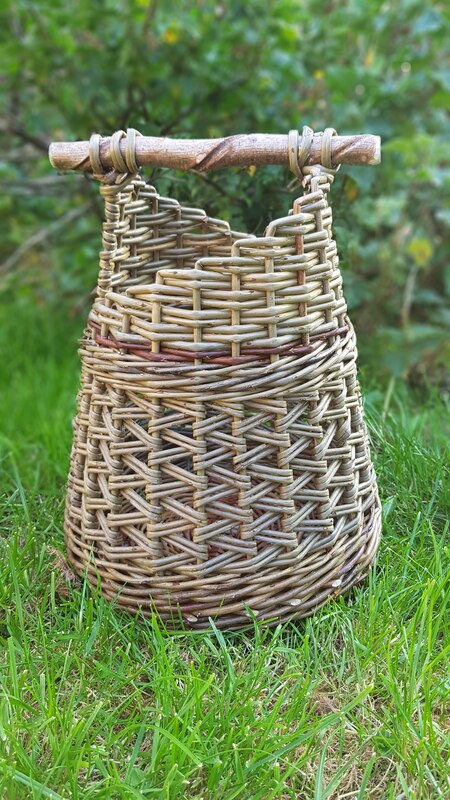
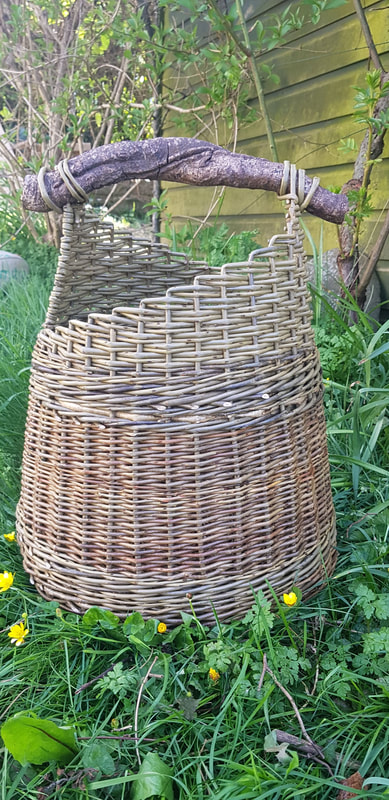
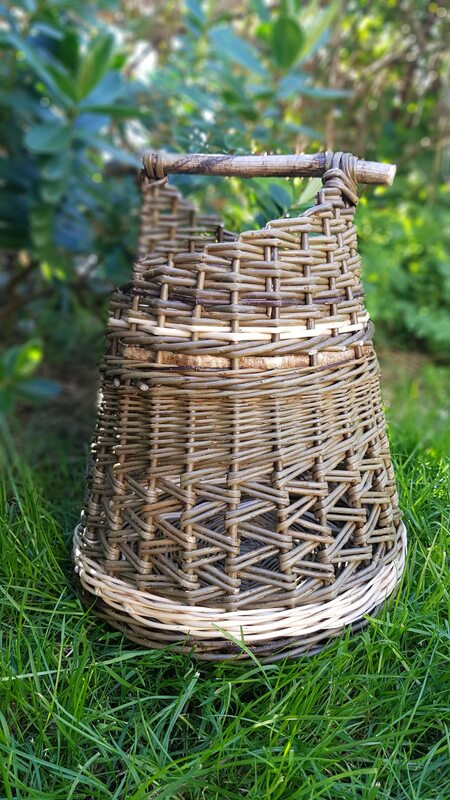
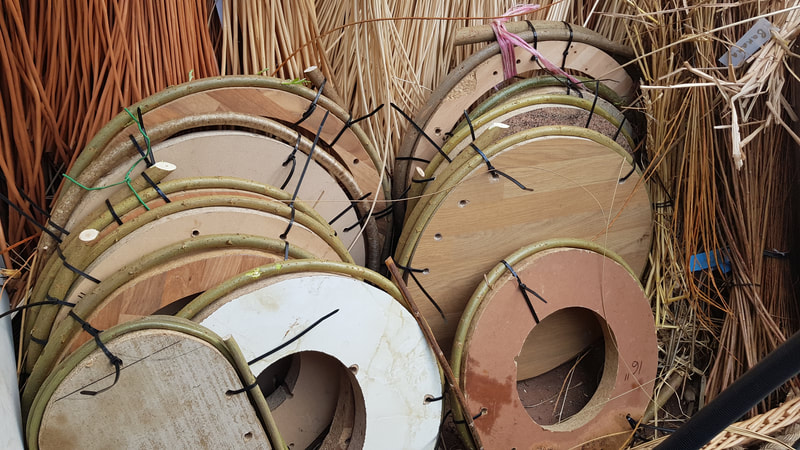
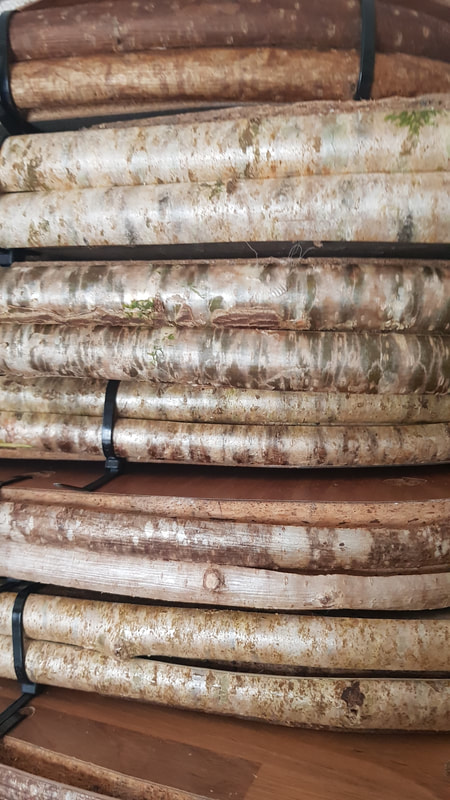
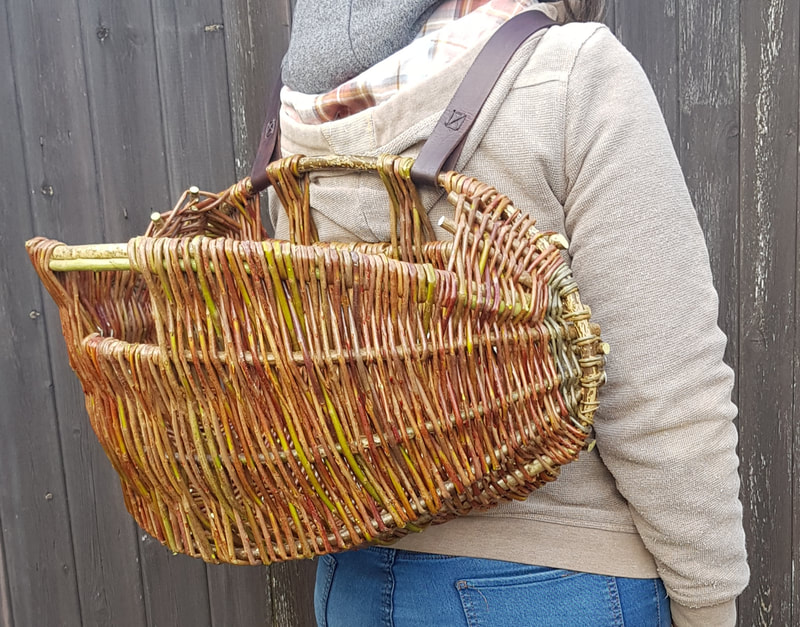
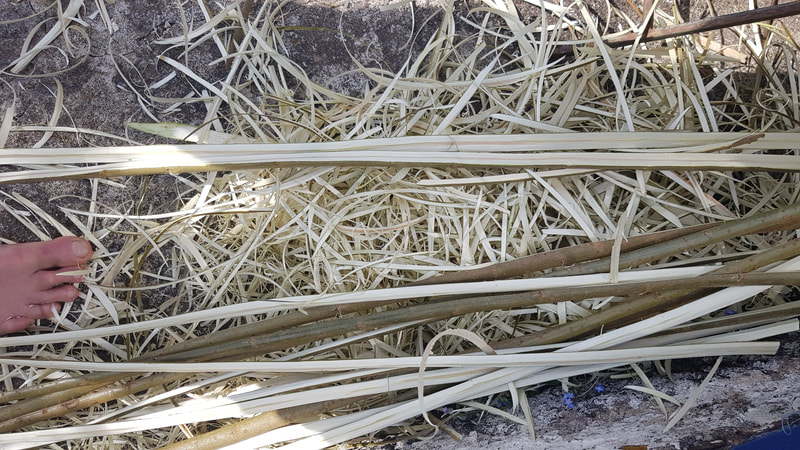
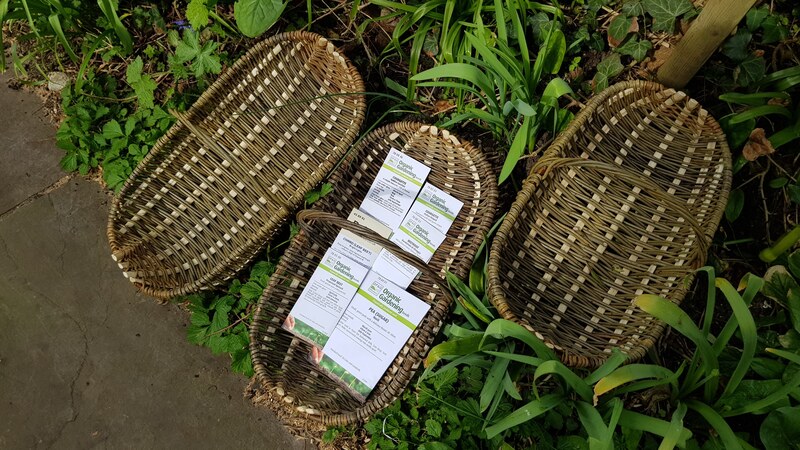
 RSS Feed
RSS Feed
